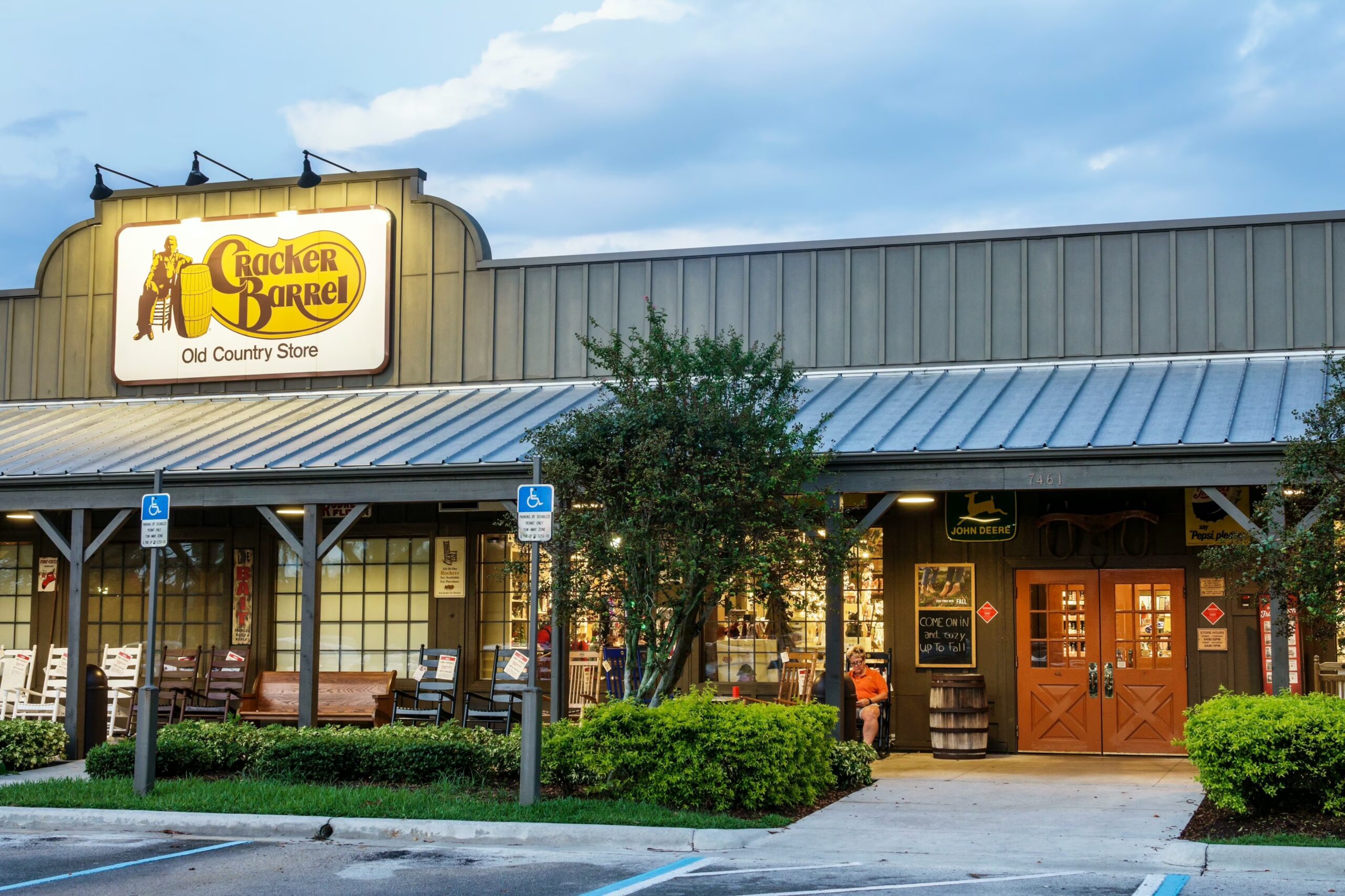By John F. Di Leo, Opinion Contributor
In recent weeks, Wal-Mart and Cracker Barrel have made national news by announcing that they are finally closing down their remaining locations in the Portland, Oregon area.
Less well known among Portland’s recent closures are the NOLA Doughnuts bakeries and the Green Zebra grocery chain, which had three locations each until forced to shut down operations this winter.
And they aren’t alone. The brick-and-mortar retail world – from restaurants and coffee shops to clothing and housewares stores – has always been a difficult business. Locations open and close all the time, even in the best of economies, so economy-watchers are always cautioned not to make too broad an analysis from a single data point.
But sometimes the evidence is overwhelming.
Portland, Oregon has seen more closures than usual in recent years, particularly since the Biden recession really began in earnest in 2022.
Some businesses have delicate PR departments who issue vague announcements; others resist the temptation to mince words and tell the truth, at least as much of it as they see, issuing closing announcements blaming the pandemic, or inflation, or the impossibility of hiring sufficient staff.
The restaurant business is especially challenging, because the owners often don’t know why their businesses are failing. They work 60, 70, 80 hours a week at their businesses; buying ingredients, hiring staff, serving their customers, cleaning up… they’re lucky if they can find a few hours each night to get some shut-eye. How much of the local and national news do they get a chance to see on television or online? How much can these overworked entrepreneurs know about what’s going on around them, in their neighborhoods, in their state capitols, and in Washington and on Wall Street?
What they know – for a fact – is simply that the math doesn’t work anymore. No matter how much they manage to sell, it doesn’t make up for the cost of staff and ingredients, the risk of theft, their insurance premiums, their rent and taxes. They experiment with price increases until they see sales fall, then they have to admit the simple truth: they cannot do business under these circumstances.
They all know when it really started to go south: early 2020. The so-called “pandemic.” So some blame the bad luck of Covid-19. Others are more precise, and blame the overreaction of governments to Covid-19 – the forced closures, the mask mandates, the social distancing craze – none of which ever had any scientific basis to speak of, but all of which greatly raised the cost of operating a business, while driving away customers in droves.
We all know how restaurants are designed: to make the most use of their space, both in the kitchen in the dining area. Have as much staff as you need, and try to fill every table with paying customers.
Governments across the country either issued mandates to keep those paying customers out entirely, or limited seating so that these restaurants could only seat a third or even a quarter as many customers as the space was designed for.
Of course they’re going out of business in droves.
Federal and state loans and grants helped some of them last another year or two. The different rules, or different levels of enforcement, from city to suburb, from neighborhood to neighborhood, from business type to business type, all enabled some to last longer than others. But it’s been three years now, and eventually, the piper must be paid.
But it’s important to remember that the “pandemic” wasn’t the only cannonball to the broadsides that the businesses of Portland have suffered in the past three years.
Portland was one of the first big cities to push for a mandatory $15/hour minimum wage. Businesses with a low percentage of entry level employees could afford that change; businesses with a high percentage of them, such as restaurants, coffee shops, groceries and discount stores, could not.
Portland was one of the cities most severely affected by the Antifa/BLM-driven downtown riots that peppered the country in 2020. Even if your location wasn’t among the many that were attacked, burned, or otherwise damaged in the riots, your insurance premiums still went up; your security systems got way more expensive, and both employees and customers gradually started reconsidering whether your offerings were worth the inherent risk of showing up.
And finally, once the Biden-Harris regime was installed in January, 2021, a whole new series of crises began, from shortages of materials and ingredients to unprecedented inflation in transportation and utility costs. Restaurants and fast food places from coast to coast found themselves with rolling outages of key ingredients like soft drink and coffee flavorings. The supply chain crisis of 2022 meant that if a kitchen machine or cash register broke down, it could be months before repair parts could be found.
In the end, businesses nationwide have been unable to staff or service their customers at the levels their customers had grown to expect, and with these unavoidable inflation levels, they have had to hike their prices anyway, despite this downgrade in service, understandably infuriating their customer base.
Optimistic entrepreneurs and corporate leaders alike have been kicking the can down the street, waiting for things to get better, month after month, year after year, and things have only continued to get worse.
And, while Portland is the city in the news right now, Portland is hardly alone in these problems.
The exact same issues are hitting practically every large Democrat-run city in America, from Seattle to New York, from San Francisco to Chicago. They all made the same mistakes in recent years – hiking their minimum wages to unaffordable levels, shutting down businesses for months in pursuit of the fantasy of “curve flattening,” raising their tax rates, encouraging rampant crime.
Yes, that was no typo: Encouraging rampant crime. The Soros-sponsored district attorneys of these cities and counties have almost universally insisted on standing down as crime waves have struck. Their refusal to prosecute shoplifters, flash mobs, and even rioters is purposeful, and it has had the only result it could possibly have: it drives businesses away.
Customers flee, employees quit, employers surrender.
And so, sooner or later, where thriving business districts once stood, we now see empty storefronts, vacant malls, ghost towns.
In a republic, every election is an opportunity to learn from one’s mistakes, a chance for a do-over, a clean start. But America’s cities have little experience in taking advantage of such opportunities.
Chicago, Illinois, for example, has such an opportunity today; early voting for the April 4 local and school board elections is already underway.
Have the voters learned anything from these recent years of unforced errors? Will they make the most of this opportunity, or will the usual suspects, against all reason, triumph again as usual?
Copyright 2023 John F Di Leo
John F. Di Leo is a Chicagoland-based trade compliance trainer and transportation manager, writer, and actor. A one-time county chairman of the Milwaukee County Republican Party, and former president of the Ethnic American Council, he has been writing regularly for Illinois Review since 2009.
A collection of John’s Illinois Review articles about vote fraud, The Tales of Little Pavel, and his 2021 political satires about current events, Evening Soup with Basement Joe, Volumes One and Two, are available, in either paperback or eBook, only on Amazon.
Don’t miss an article! Use the free link above to sign up for Illinois Review’s free email notification service, so you always know when Illinois Review publishes new content!
By Janelle Powell, Opinion ContributorLike Donald Trump before him, the lifelong Illinoisan built his life outside politics – and that independence is exactly what makes him a threat...
Read moreDetails







